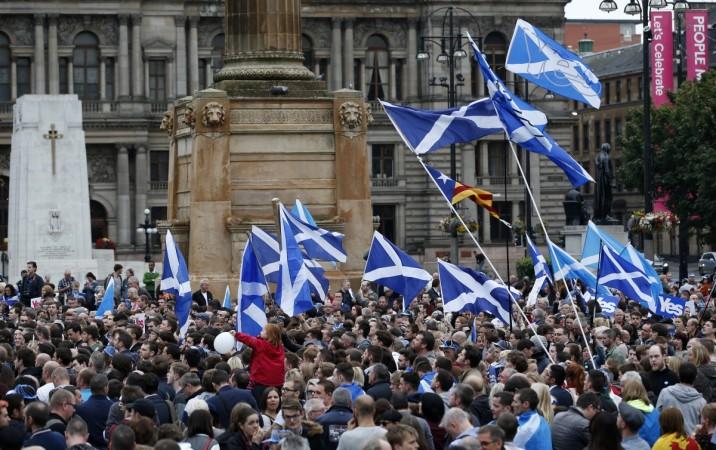
The historic moment has arrived and it will be the most important event for the United Kingdom after 1707 – when the Act of Union of Scotland with England led to the creation of Great Britain and, ultimately, the United Kingdom with the inclusion of Northern Ireland.
More than 4.2 million Scots – or 97% of the adult population of the country – will vote to decide whether or not Scotland will remain part of the UK.
With the referendum now finally underway, there are many questions being asked about the vote. Here are top 10 things to know.
1. Timing: When is the vote?
The polls will open in Scotland at 7am local time Thursday and close at 10pm. The 4.2 million people who have registered to vote include people aged 16 and above. The result is expected by early Friday morning.
2. What will happen to the term 'United Kingdom' if Scotland separates?
The word 'United Kingdom' will cease to exist in a literal sense. The ancient kingdoms of Scotland and England formally united to form the country in 1707. Now without Scotland, there would just be one kingdom left, England. Most certainly, the diagonal cross in the Union Jack, the Scottish saltire, will be removed from the flag.
But debates are still ongoing on what exactly to call a 'United Kingdom' without Scotland.
3. Will Scotland still be part of the EU and NATO?
They may need to go through an official process such as applying for a membership and getting accepted by other EU and NATO member states including the UK. That is because, 'Scotland' as an independent nation would have never been recognised until then.
4. How much smaller will the new United Kingdom be, if Scotland leaves?
Geographically speaking, Scotland comprises one-third of the island's land mass but it has only 8% of its people. The UK, which is currently the size of New Zealand, will be reduced to the the size of Tunisia once Scotland makes its way out of the Union.
5. Will the British Pound still be the currency?
This is a complicated issue with debates on the matter heading nowhere. Scottish nationalists insist on continuing to use the pound, but financial officials in London are saying that won't work. Scots are of the view they will have the right to use whatever currency they like and they are inclined towards continuing with the pound.
6. Will the borders be drawn?
Technically, there might be a subtle border to separate the countries although there are no plans as of now to build a concrete wall between the two countries. Although borders will continue to be open for people to cross, there are speculations that the issue of immigration might complicate things.
7. Will the Queen lose her reign over Scotland?
The queen will have nothing to lose. Some of the Scottish nationalists want the queen to continue her reign over Scotland, although there are others who support republic form of government for the new Scotland and might one day bid adieu to the monarch.
8. Why is the US nervous about the vote?
The White House says the referendum is "an internal matter" for Britain, but it is essential to read between the lines on what the US has to say. Scotland will not support nuclear weapons, as it appears. But the country is home to 58 US Trident II D-5 missiles, which have to be returned to US, at a time when situation in Europe is unstable.
Pentagon has all the reasons to be worried about a weakened military prowess of UK as it is a very powerful ally.
9. Will Scotland really gain independence?
Opinion polls suggested last week that there is strong chance for a 'yes' vote winning – something that prompted the PM to deliver an emotional speech in which he entreated Scots not to break up from the family. But on Monday, ScotCen published another "poll of polls" putting "No" at 51% thereby leaving Thursday's outcome unpredictable.
10. Will Scotland immediately become independent on Friday?
The vote in itself does not have a binding legal power. The British government has only promised that independence and the process thereof will begin in the event that the result is 'Yes". Official split is slated for March 2016.
Even if Scotland votes 'no' on Thursday, things are likely to change as Cameron, last week, promised future extra powers for Scotland's existing parliament if Scots chose to say 'No'.














